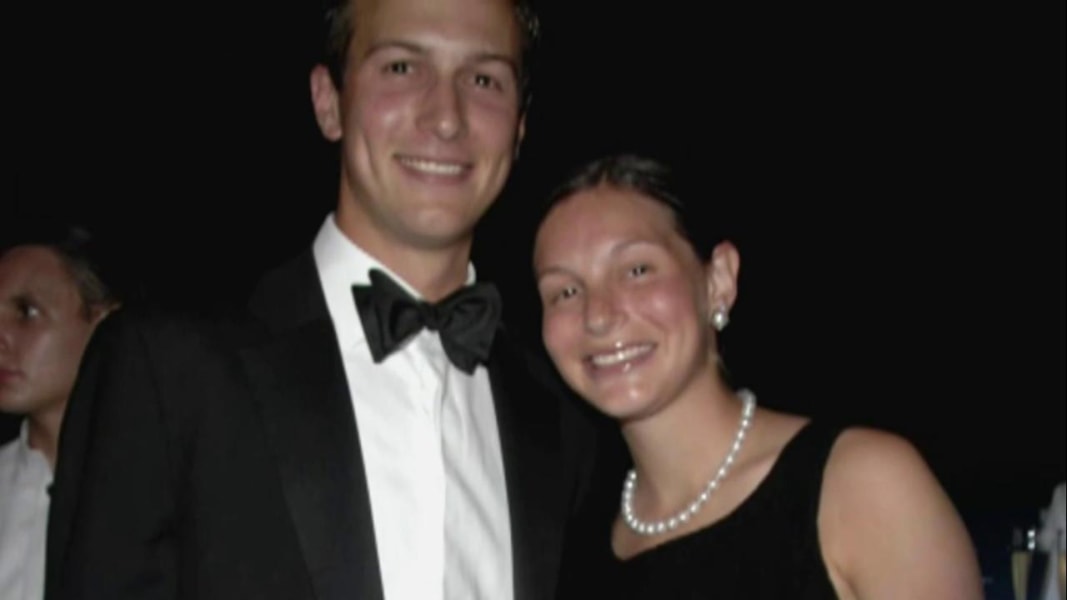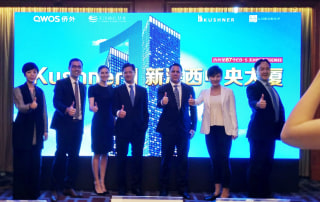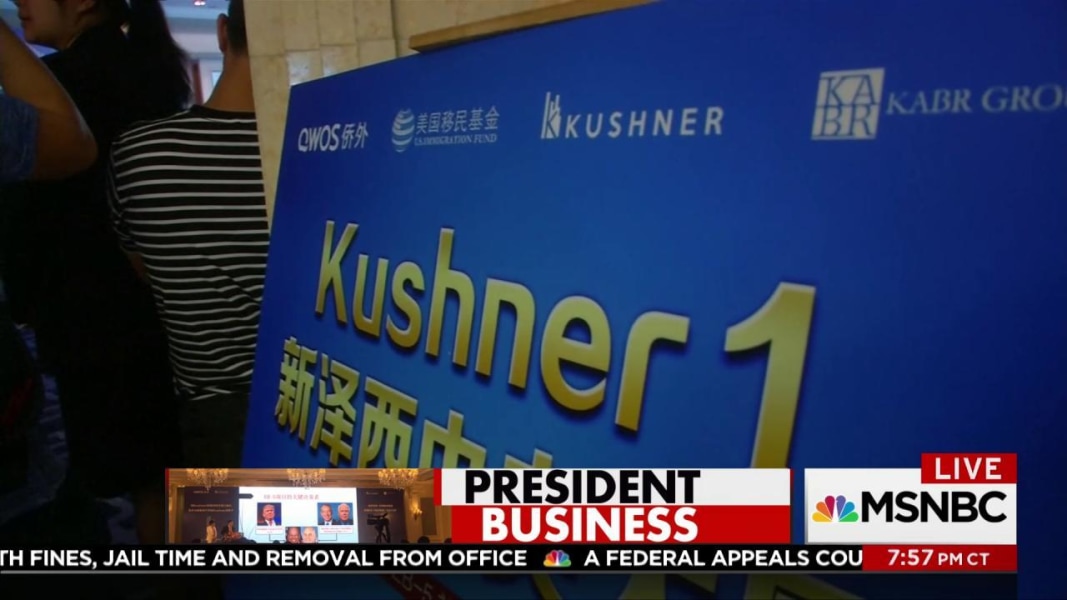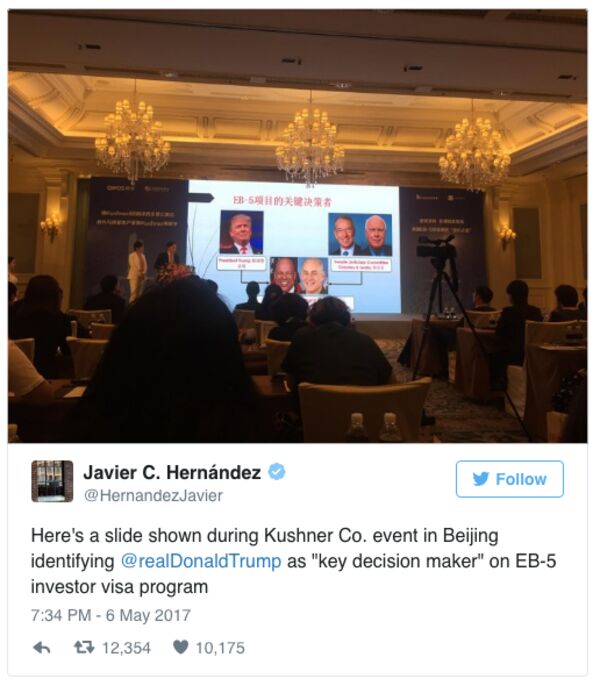SEC blocks Chicago Stock Exchange sale to Chinese investors
By John McCrankThe seal of the U.S. Securities and Exchange Commission hangs on the wall at SEC headquarters in Washington, U.S., June 24, 2011.
U.S. regulators on Thursday killed the politically sensitive sale of the Chicago Stock Exchange (CHX) to a group led by China-based investors, saying a lack of information on the would-be buyers threatened the ability to properly monitor the exchange after the deal.
The move by the Securities and Exchange Commission (SEC) ends a two-year battle to gain approval for the sale and underscores the more hostile environment facing Chinese buyers under the administration of U.S. President Donald Trump.
Trump brought the CHX deal up twice during the election campaign as an example of how jobs and wealth were leaving the United States.
SEC staff initially approved the sale of the privately owned exchange in August, but within minutes of the announcement SEC commissioners, led by Chairman Jay Clayton, a Trump appointee, put the decision on hold for further review.
U.S. lawmakers from both parties had harshly criticized the deal in joint letters to the SEC, arguing that it would give the Chinese government access to American financial markets and questioning the SEC’s ability to regulate and monitor foreign owners.
“This has been a long fight, and I am grateful we now have a President who recognizes the national security threats of allowing a Chinese government-affiliated company to own the Chicago Stock Exchange,” Republican Congressman Robert Pittenger said in a statement on Thursday.
“We must continue to be vigilant, with thorough oversight, to prevent the highly-coordinated and strategic efforts of the Communist Chinese government to threaten our national security through malicious business investments.”
CHX is a niche player in the industry, handling just 0.5 percent of U.S. equities trades.
The acquisition, which was proposed in February 2016 and worth around $25 million, was led by Chongqing Casin Enterprise Group, a privately held company that invests in real estate development and financial holdings.
CHX declined to comment on Thursday on the final decision.
UNANSWERED QUESTIONS
The SEC’s decision comes at a time of rising trade tensions between China and the United States.
In the latest signs of friction, Beijing earlier this month launched an anti-dumping investigation into U.S. sorghum shipments following the U.S. Commerce Department’s ‘self-initiated’ dumping probe into Chinese aluminum imports in late November.
The Chinese foreign and commerce ministries did not respond immediately to emailed and faxed questions requesting a comment.
FUTURE IN DOUBT
After a two-year delay, the SEC’s decision puts CHX’s future in doubt.
The move by the Securities and Exchange Commission (SEC) ends a two-year battle to gain approval for the sale and underscores the more hostile environment facing Chinese buyers under the administration of U.S. President Donald Trump.
Trump brought the CHX deal up twice during the election campaign as an example of how jobs and wealth were leaving the United States.
SEC staff initially approved the sale of the privately owned exchange in August, but within minutes of the announcement SEC commissioners, led by Chairman Jay Clayton, a Trump appointee, put the decision on hold for further review.
U.S. lawmakers from both parties had harshly criticized the deal in joint letters to the SEC, arguing that it would give the Chinese government access to American financial markets and questioning the SEC’s ability to regulate and monitor foreign owners.
“This has been a long fight, and I am grateful we now have a President who recognizes the national security threats of allowing a Chinese government-affiliated company to own the Chicago Stock Exchange,” Republican Congressman Robert Pittenger said in a statement on Thursday.
“We must continue to be vigilant, with thorough oversight, to prevent the highly-coordinated and strategic efforts of the Communist Chinese government to threaten our national security through malicious business investments.”
CHX is a niche player in the industry, handling just 0.5 percent of U.S. equities trades.
The acquisition, which was proposed in February 2016 and worth around $25 million, was led by Chongqing Casin Enterprise Group, a privately held company that invests in real estate development and financial holdings.
CHX declined to comment on Thursday on the final decision.
UNANSWERED QUESTIONS
The SEC’s decision comes at a time of rising trade tensions between China and the United States.
In the latest signs of friction, Beijing earlier this month launched an anti-dumping investigation into U.S. sorghum shipments following the U.S. Commerce Department’s ‘self-initiated’ dumping probe into Chinese aluminum imports in late November.
The Chinese foreign and commerce ministries did not respond immediately to emailed and faxed questions requesting a comment.
Friday is Lunar New Year’s day, a public holiday in China.
Casin had said it saw potential in CHX and that its long-term goal was to list Chinese companies in the United States on the bourse.
Casin had said it saw potential in CHX and that its long-term goal was to list Chinese companies in the United States on the bourse.
It also planned to eventually build an exchange in China using CHX technology.
If the deal had been approved it would have marked the first time Chinese investors had been direct owners of a U.S. stock exchange, although not the first time a U.S. exchange had foreign owners. Deutsche Boerse AG bought the U.S.-based International Securities Exchange for $2.8 billion in 2007, before selling it to Nasdaq Inc for $1.1 billion in 2016.
The CHX deal was approved in December 2016 by the Committee on Foreign Investment in the United States, which scrutinizes deals for potential national security concerns, but also needed SEC approval.
The Wall Street regulator on Thursday did not mention the China connection, but said it found several reasons why the deal did not meet laws governing the ownership of U.S. exchanges, which are stricter than usual ownership rules due to the role they play in the economy.
Critically, the SEC said in a filing posted on its website that it was not satisfied about the source of funds for the deal and who the ultimate consortium owners would be, raising worries the structure of the deal could allow new, unknown entities to assume stakes over time.
The SEC, which conducted its own extensive due diligence when reviewing the case, said that the CHX was not able to provide key information it had requested, including access to the potential owners’ books, “leaving various questions unanswered.”
The CHX’s inability to verify the ultimate potential owners would also make it difficult for the bourse to satisfy its ongoing compliance monitoring obligations, and would obstruct the SEC’s own capacity to oversee CHX, it said.
In particular, the SEC said it was not satisfied it would have full access to the exchange’s books and records if the deal were to go through.
If the deal had been approved it would have marked the first time Chinese investors had been direct owners of a U.S. stock exchange, although not the first time a U.S. exchange had foreign owners. Deutsche Boerse AG bought the U.S.-based International Securities Exchange for $2.8 billion in 2007, before selling it to Nasdaq Inc for $1.1 billion in 2016.
The CHX deal was approved in December 2016 by the Committee on Foreign Investment in the United States, which scrutinizes deals for potential national security concerns, but also needed SEC approval.
The Wall Street regulator on Thursday did not mention the China connection, but said it found several reasons why the deal did not meet laws governing the ownership of U.S. exchanges, which are stricter than usual ownership rules due to the role they play in the economy.
Critically, the SEC said in a filing posted on its website that it was not satisfied about the source of funds for the deal and who the ultimate consortium owners would be, raising worries the structure of the deal could allow new, unknown entities to assume stakes over time.
The SEC, which conducted its own extensive due diligence when reviewing the case, said that the CHX was not able to provide key information it had requested, including access to the potential owners’ books, “leaving various questions unanswered.”
The CHX’s inability to verify the ultimate potential owners would also make it difficult for the bourse to satisfy its ongoing compliance monitoring obligations, and would obstruct the SEC’s own capacity to oversee CHX, it said.
In particular, the SEC said it was not satisfied it would have full access to the exchange’s books and records if the deal were to go through.
FUTURE IN DOUBT
After a two-year delay, the SEC’s decision puts CHX’s future in doubt.
The exchange said it needed the infusion of capital to invest in its operations and attract business.
CHX’s other key initiative to boost its volumes centers around giving certain trading firms faster access if they agree to strict trading obligations aimed at making it easier for others to buy and sell stocks on the exchange.
SEC staff approved that plan in October, but the SEC commissioners also put that decision on hold and there is no deadline for a further ruling.
Technically, CHX could still resubmit its proposal or seek other buyers.
CHX competes against the New York Stock Exchange and its three affiliated exchanges, all owned by Intercontinental Exchange Inc, and Nasdaq Inc and Cboe Global Markets Inc, both of which own four U.S. stock exchanges.
CHX’s other key initiative to boost its volumes centers around giving certain trading firms faster access if they agree to strict trading obligations aimed at making it easier for others to buy and sell stocks on the exchange.
SEC staff approved that plan in October, but the SEC commissioners also put that decision on hold and there is no deadline for a further ruling.
Technically, CHX could still resubmit its proposal or seek other buyers.
CHX competes against the New York Stock Exchange and its three affiliated exchanges, all owned by Intercontinental Exchange Inc, and Nasdaq Inc and Cboe Global Markets Inc, both of which own four U.S. stock exchanges.








